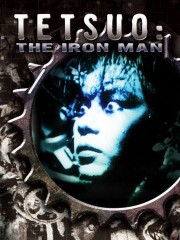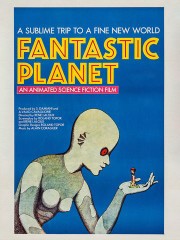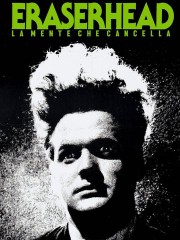
(Photo by Daniel Boczarski/Getty Images)
As the grandnephew of Alice Coltrane, LA-based recording artist Flying Lotus (a.k.a. Captain Murphy a.k.a. Steven Ellison) draws from a variety of eclectic influences to create his music, a unique blend of experimental jazz, hip-hop, and electronic compositions. Even if his name doesn’t ring any bells, there’s a decent chance you’ve heard his work, whether it was the dreamy track behind a late-night Adult Swim promo or one of his collaborations with the likes of Erykah Badu, Radiohead’s Thom Yorke and Jonny Greenwood, or Kendrick Lamar. In fact, his work on the latter’s album To Pimp a Butterfly earned him two Grammy nominations last year.
But Ellison is interested in more than just music, and this week, he makes his feature film directorial debut with Kuso, a collection of loosely connected post-apocalyptic vignettes that range from the comedic to the horrific, sometimes in the same scene. This is a hard-to-describe film that will divide even audiences accustomed to midnight movie fare. Ahead of Kuso‘s exclusive streaming release on Shudder (and a limited run in LA’s Silent Movie Theatre), Ellison took some time to speak with RT about his Five Favorite Films, and while he gravitated to the ones that inspired Kuso, it was clear his passion for movies runs deep.
Well, first off, I’ll say Beetlejuice because that is my number one movie of all time, period. I know it’s not like no f—in’ Orson Welles s—, but I swear to god, Beetlejuice was, to me, the greatest movie ever made. It’s amazing, and it’s so fun. It’s so fun and it ages well.
You know, watching it as a kid was great, and as you get older you’re like, “Oh these were some dirty jokes in here.” I remember I loved it then, and then I got high and saw it, and I was like, “Oh my god! Dude, what the…” It was amazing.
I’ve never tried that. That’s something to put on the bucket list.
Oh yeah, yeah, yeah. Watch Beetlejuice stoned, for real, if you never have. That movie is f—ing awesome. It’s so original. It’s so original. There’s nothing like it.

Funky Forest. It’s a Japanese movie. It’s kind of like a patchwork film, kind of like Kuso is, in a way. I think it was heavily influential in just like, “OK well, it doesn’t all have to be … It can feel more like a short film, but in the same world, in an absurd world.” I think it was really, really inspiring for me. It had a lot of body comedy in that movie, a lot of really cool prosthetic effects that mixed with CGI, I think. It’s one of the movies where people will just be like, “What the f— is this? What is this?” And it’s not perfect movie, but it is, at times, perfect.

Another one is Tetsuo: The Ironman, directed by Shin’ya Tsukamoto. To me that’s up there. That’s up there for me. I’d say the whole Tetsuo series, just because it’s such a beautifully handcrafted movie. You can tell there’s so much in it. I love that kind of, you know, like the early Tim Burtons and the David Lynches and all that stuff. There’s something about this Shin’ya Tsukamoto stuff. It was just at the perfect time when cyber-punk — what cyber-punk looked like — he was one of those people kind of establishing that.
And whether people know it or not, Tetsuo: The Ironman was just hugely influential on everything, on sci-fi after that. It became like a design resource for everybody f—ing with sci-fi. You know, people have seen these images without even knowing the movie. It’s really, really awesome. I just think about it still, like, “How did they do that with no money, really? How did they pull this s— off and build these amazing effects?” They had to redub all the audio because there was no audio when they filmed it. There were a lot of elements against them too, but they pulled it off and it’s still just so amazing. I just hope to do a fraction of that with my own film.
Having finished Kuso, you must kind of know what that feels like, right?
Yeah, I get it. I get it. I get it to an extent, you know? But I think in their case, they had a lot less people to count on, and I think they had more elements against them. I think the one thing that I’ve learned about this s— so far is you just have to use what you’ve got, because it ain’t gonna be easy. So what do you have around you? There it is. There’s the movie. Especially when you have no money, you know? Know your world.

We can throw in Fantastic Planet, La planète sauvage. We can throw that in there. The cut-out animation style, the psychedelia of it. I think it’s such a hypnotic piece of work, and I loved it ever since I heard the samples of the movie. I heard the samples before I saw anything. Madlib sampled that s—. I was like, “What is this animated movie?” So I credit him for me hearing about this, and I have just been on it ever since. I own some of the original cut-outs of the movie that they did. I buy some weird little pieces of art sometimes, but that is one of my prized possessions right there. You know, bits of little movie history.

What kind of a–hole would I be without giving David Lynch some love, but I can’t figure out which movie I’d pick of his. I think I’ll have to say Eraserhead in this case, because it was his movie where he put all of himself into it, you know? Every little bit of what he could do on his own, he did it, in terms of designing things and building things and whatever he actually could do and put forth, he put in this movie. He gave it all that energy. I don’t know how many times I’ll be able to do a Kuso, just energetically.
If I had to make another movie, I probably would not go as far as I did this time on my own, because it took so much energy and took me away from a lot of things. I’m sure it was like that for him, too. By the time he got to Blue Velvet, he got people who have his style worked out, what things he likes. He didn’t have to try to design every little aspect of it. Then he did, and that, to me, is something that resonates with me. I listened to the making of Eraserhead while making my movie to just kind of keep me inspired.
Ryan Fujitani for Rotten Tomatoes: As someone familiar with your work, it’s always been clear to me that you have this deep, eclectic knowledge of music, so it’s interesting — and maybe not surprising — to find out that it’s the same for you with movies, as well. I’m wondering, when did that start? Where did that come from?
Steve Ellison: I don’t know man. I’ve always been a fan of films. I went to film school too, you know, and I was really gung-ho about that for a while, but then I was making music on my own, and that was way more appealing because I didn’t need a whole crew to do it. I could just do it on my own at the time. It was like, “Well s—, I’m gonna miss this History of Film class to go and make some beats.”
And it just kept happening. It kept happening. I always said I would go back and make films if I could, if I made enough money in music and all that. I just hit this point where I’d done so much stuff in music — I f—in’ got a Grammy nomination and all this stuff — and I was like, “What else am I gonna do, man? I’m not gonna just go back to the drawing board after losing a Grammy to Justin Bieber.” [laughs] You know what I’m saying? I’m like, I need to challenge myself and go back to school. So that’s kinda what I did in my own brain. I was studying heavy after that.
But yeah, man. I do love it, and that’s something that… I get the feeling that a lot of people will hear about me making a movie and they’ll be like, “Oh, he’s just trying to be whatever,” but I actually care about this s—. It’s not like a vanity f—ing project. I hope people see that in the movie.
RT: When you first started making music as Captain Murphy, you remained pretty anonymous, and clearly that’s not the case with Kuso. Was there initially any thought to being anonymous as a director, too?
Ellison: Kinda, kinda. That’s why it says “Directed by Steve.” Initially I really wanted to just do it without having to bring Flying Lotus into it, but it hit a point where I was just… The first half of the production, nobody knew I was making the movie. Nobody. Just my friends. It wasn’t in Variety or Deadline. We were just working, chipping away at this thing and calling it like little short films. We were just chipping away at this thing and no one knew.
Then I just hit a point where I f—ing just needed more help, man. I knew I could get more help if I started reaching out to people publicly and using what I had. So I had to do it. It was just too hard. I did want to just do it anonymously and take the pressure off of myself in a way, and just have a clean slate in this field. But it became too difficult.
RT: So circumstances forced you to relinquish that anonymity.
Ellison: Yeah, yeah. Because I liked the idea of just having a bland name, like just “Steve.” It’s my real name, but it’s the most boring name of all time. I was like, “That’d be great if that guy directed the craziest s—.” That’d be f—in’ hilarious.
RT: Right, like, “Who is this guy?”
Ellison: Yeah, “Who the f— is Steve?” I was like, “Maybe I can make that name sound terrifying.” [laughs]
RT: So, I read somewhere — I think it was an Okayplayer interview — that the original name for the first track on your album You’re Dead! was “Jodorowsky.”
Ellison: Yes, yeah. Wow, yeah, good call.
RT: So, having seen Kuso, it’s clear to me you’re a fan of the director. I’m wondering how much of an influence he was on you in general and maybe on the film itself.
Ellison: He’s hugely influential on my stuff, and unfortunately, I couldn’t shout him out in my top five. Just in terms of, like, even his comics. I think I’m a bigger fan of a comic of his that’s never been filmed than The Holy Mountain and all that. Metabarons — it’s this comic he did that’s kind of like… It’s like Dune meets The Fifth Element meets Star Wars. It’s amazing. Not a lot of people f— with it.
RT: That’s not the one he did with Moebius, right?
Ellison: No, it’s not Moebius. I don’t think Moebius did this one, but it feels like that. It’s got that vibe. That’s like The Incal; I think he did that and another one. But this s—, it feels like that, but it’s f—ing Star Wars deep, the world of it. To me, Metabarons, I want to f—ing make that movie, right? If I can keep doing this s— and they start giving me budgets, I’ll make a Metabarons movie and it’ll be f—ing awesome.
I met Jodorowsky the other day in New York and that was huge for me. At the end of my promo cycle in New York, I got to meet him, and he gave me his blessing. That was really special to me, after having done this.
RT: Did he get to see Kuso?
Ellison: Nah, but we’re gonna get him a link, though. He’s gotta see that.
RT: Did he know who you were when you met him?
Ellison: No, he didn’t know who I was. He didn’t know who I was, but we got to chop it up for a minute. We have the same publicists in New York. They were like, “Yo, you’ve got to meet him.” So they made it happen. It was awesome. It was a real brief encounter, but for me, it felt like my reward for having done this s—. Going through the trenches making a movie, you know? It was really special.
RT: If someone were to ask me to summarize Kuso, I’d have a really difficult time. When you were pitching this out to the people you collaborated with, how did you describe it to them?
Ellison: I would just say it’s f—ing crazy, this project — you know, experimental horror comedy thing. What I would do, though, is every time I would work on some s—, I would kinda make little highlight reels of the movie to illustrate the point to someone who I wanted to get interested in the movie. Like, “You can watch the first 15 minutes of Kuso, and then if you want to be involved, at least you know where we’re going. This is where we’re at, if you want to be down with it.” I had to do that quite a bit. A lot of people were scared of me, you know?
So I made little mini-trailers, and then eventually it was, “Alright, I’ll show you this short film,” like Royal, for example. I would show them that, and then it was, “As part of this world, what do you think?” It made it a lot easier.
RT: One last question. I’m half Japanese myself, so I know what “kuso” means, and I’m curious about the choice of making that the title. Obviously there’s a thematic relevance to the film, but is there a reason why you chose that title, and why you chose it in Japanese?
Ellison: Well, first off, I knew I was treading in these waters, so I did want to show love to Japan, you know? I wanted to show love to Japan, and I tried to in all the aspects of this movie. I tried to give a little nod to the country I love. But it started off as me wanting to find a name for this character. His last name was supposed to be Kuso, so it made it simple. I don’t know how it came about, I really don’t, but it just stuck. For a while I had different names for the movie, like I was thinking it was gonna be called Yo Ass Ugly. [laughs] For a long time that’s what I was thinking. I was like, Yo Ass Ugly. There were other titles too, but I just kept coming back to Kuso because it was one word, to the point, it was a good way to summarize everything.
RT: Maybe it’s just me, but it kind of has a mystical quality to it, especially if people don’t know what the word means.
Ellison: It does, it does! Yeah, exactly, yeah. It’s awesome, and you can get away with it. You can get away with saying it. [laughs]
Kuso will be available exclusively on Shudder on Friday, July 21, as well as a limited run at Los Angeles’ Silent Movie Theatre.